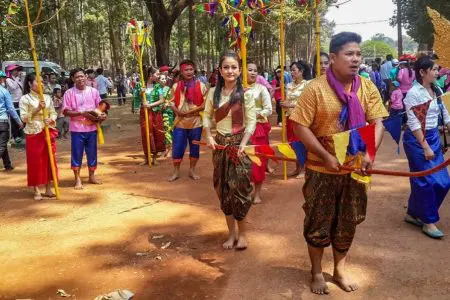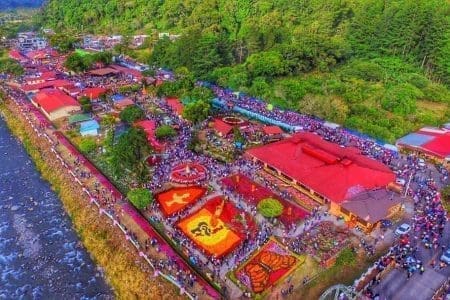
Chinese New Year is undoubtedly China’s pre-eminent and most intense festive period characterised by loud parades, sumptuous family meals, the lucky colour red, paper lanterns and lots of fireworks.
New year in China also results in the world’s largest migration of humans every year, when millions of people return home to visit family, or go on holiday. It is estimated that up to three billion trips will be made during this period.
When is Chinese New Year 2026?
The first day occurs on the second – sometimes the third – new moon after the winter solstice, which always falls somewhere from 21 January to as late as 22 February. Celebrations then take place over 15 days with the last day the most important one.
Chinese New Year 2026 falls on 17 February.
In China itself new year is called chunjie which means Spring Festival. It falls on 17 February in 2026 which, according to the Chinese calendar, is the Year of the Horse. The same date is also used for Vietnamese New Year called Tet, Mongolian New Year called Tsagaan Tsar and Tibetan New Year called Losar. Tet and Tsagaan Tsar are in their countries the year’s most important events with similar rituals and festivities as new year in China. This is when nearly a quarter of the world’s population celebrates lunar new year.
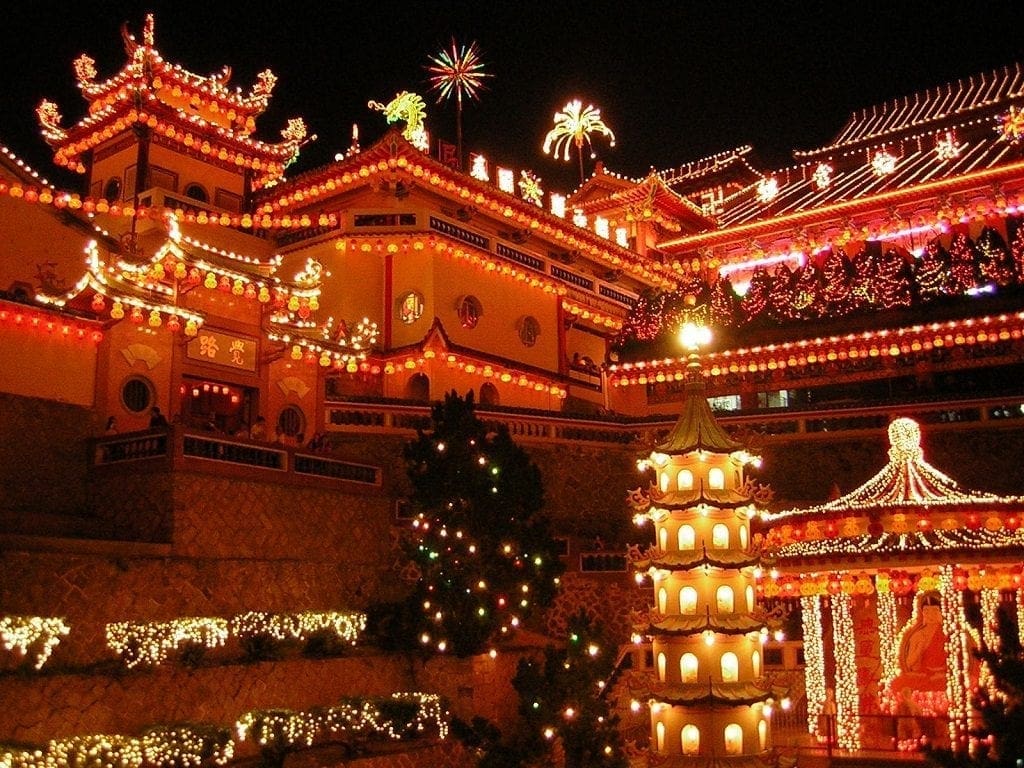
Chinese New Year History
According to legend, Nian was a man-eating predator beast in ancient China that could enter houses imperceptibly. The local people quickly learned that Nian was sensitive to loud noises and the colour red, and managed to chase it away with firecrackers, fireworks and the use of red colours everywhere inside the house. These customs then evolved into new year in China.
Chinese New Year traditions
The event is celebrated almost throughout entire Asia and everywhere else where there’s a prominent Chinese community. Unlike with Western new year, it’s first and foremost a family celebration where all relatives gather at the house of the oldest family member. For some Chinese who work and live in big cities, this is the only time in the year that they get a chance to visit their families. Chinese New Year traditionally starts with a big family meal on the first day of the new lunar year.
At this time of the year it’s customary for people to pay off their debts, buy new clothes and clean their houses. The gods are honoured and presents – wrapped in red paper – are exchanged. A whole lot of fireworks and firecrackers, also wrapped in red paper, are let off while dragon and lion dances animate the streets. The colour red, which in Chinese culture represents good fortune, can be seen everywhere.
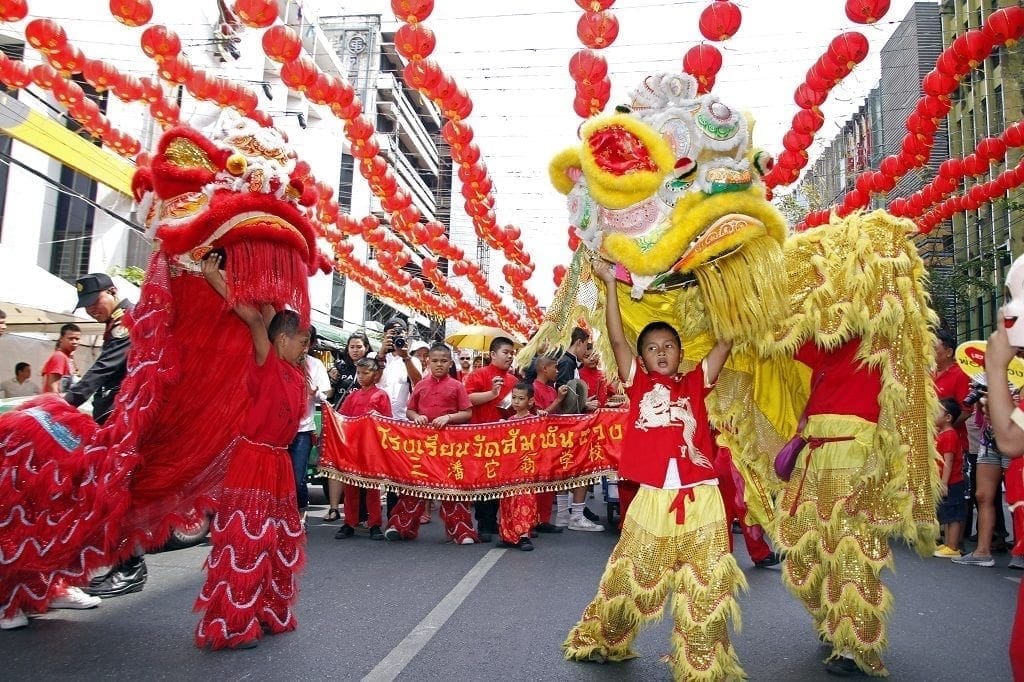
If you happen to be in China during this period you’ll find that the local firecrackers are much louder than in the West. It’s an impressive show, but also dangerous at times with little regard of who’s around. Always take some precaution when firecrackers are let off.
When the noise finally subsides, the rest of the days are spent visiting other family members. Married women will take the occasion to visit their own parents while there are also lots of visits to the temple.
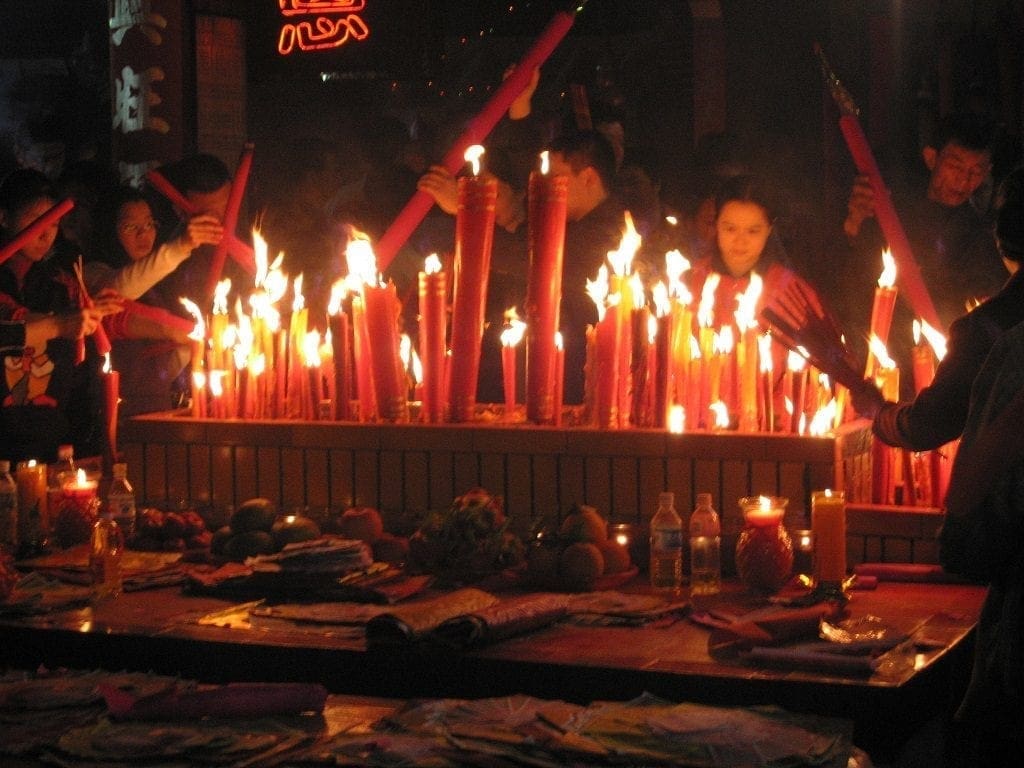
The ubiquitous money-filled red envelopes – called hongbao in Mandarin and lai see in Cantonese – also form an important part of Chinese New Year. Whether you hand out or receive the envelopes depends on your social status. Married, working family members are expected to give money, while children and the elderly receive it.
While in China during this time, visit the cool Harbin Ice Festival.
Finally, the last day of Chinese New Year is known as the Lantern Fest where people hang red lanterns at their front doors. Also decorating doors are red Chinese characters denoting certain meanings like fortune or happiness. Large decorations in the shape of one of the animals of the Chinese zodiac are common too. As 2024 is the Year of the Dragon, expect lots of cartoon images of dragons in shopping malls, public squares and on the streets.
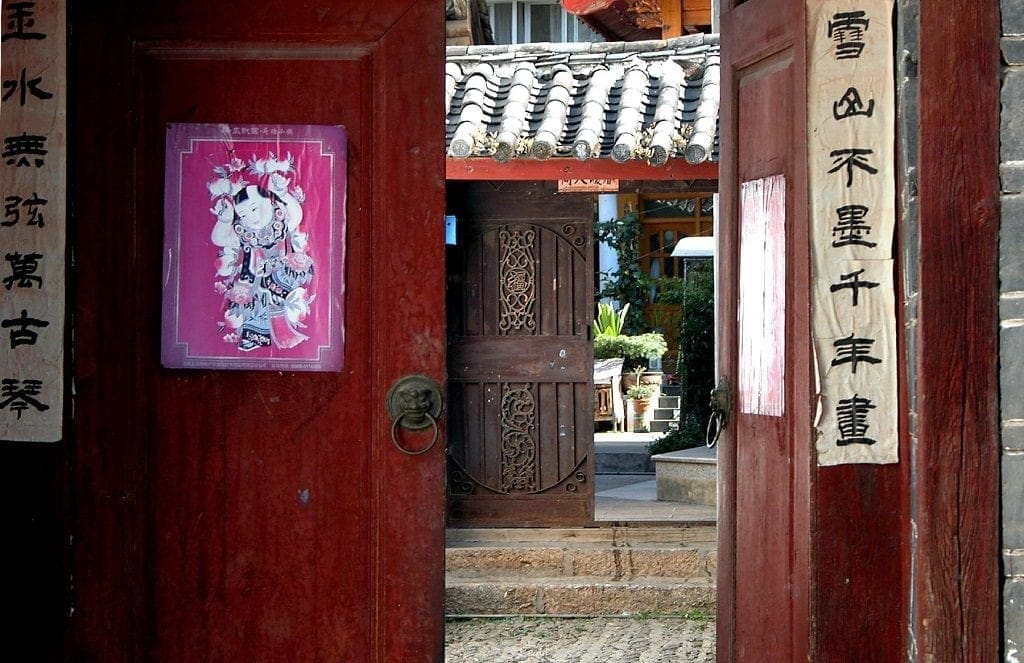
Chinese New Year Zodiac Animals
According to legend, one day the Lord Buddha summoned to him all animals, but only 12 showed up. To reward these 12 animals, Buddha gifted to each of them a year to which it could attribute specific qualities and characteristics.
Even though this is a well known legend, the truth is that at the birth of Chinese astrology, there were 36 animal signs. Only after the Chinese lunar year was adapted to the Western solar year, the 12 animal signs that we still know today came into existence. They are the rat, ox, tiger, rabbit, dragon, snake, horse, sheep, monkey, rooster, dog and pig, in that order.
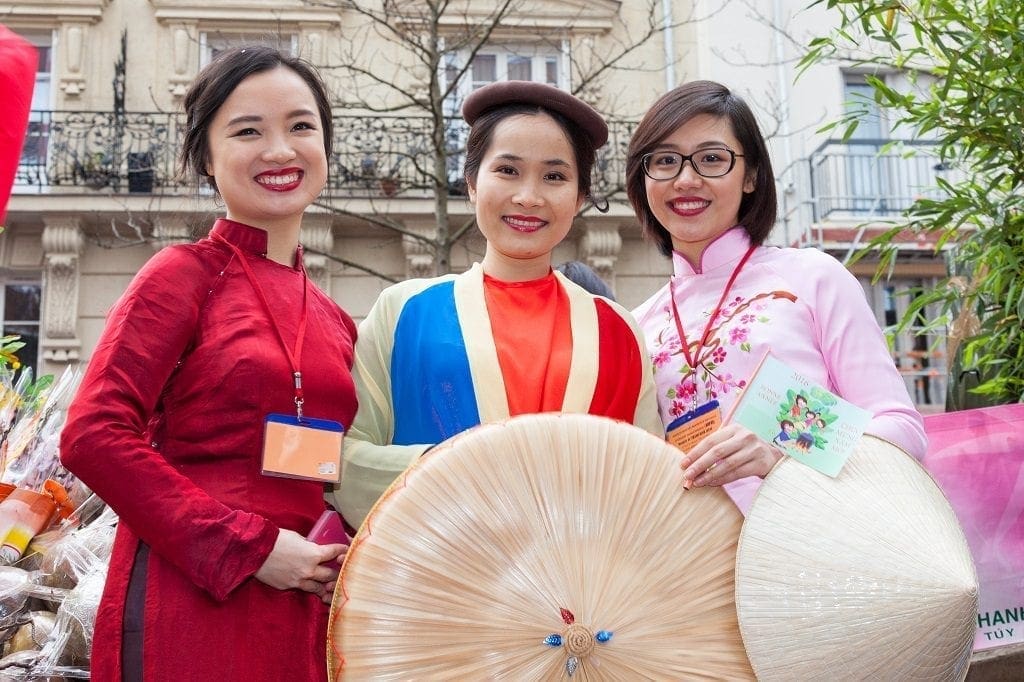
Chinese New Year around the world
Chinese New Year is celebrated wherever there’s a large community of ethnic Chinese, including in Western cities like London, Paris, San Francisco and Sydney. But it’s also an important event for other ethnicities such as the Koreans, Mongolians, the Vietnamese, the Tibetans and the Maio people or Chinese Hmong. It’s during this time of the year that the largest human migration takes place with Chinese from all over the world returning home to their families to share the New Year’s meal.
If you wish to discover how Chinese New Year is celebrated in Cambodia, visit our sister website Cambodia Begins at 40.
2026 – the Year of the Horse
Those fortunate enough to have been born in the Year of the Horse have great energy and are quick-witted. Other horses years were 1942, 1954, 1966, 1978, 1990, 2002 and 2014.
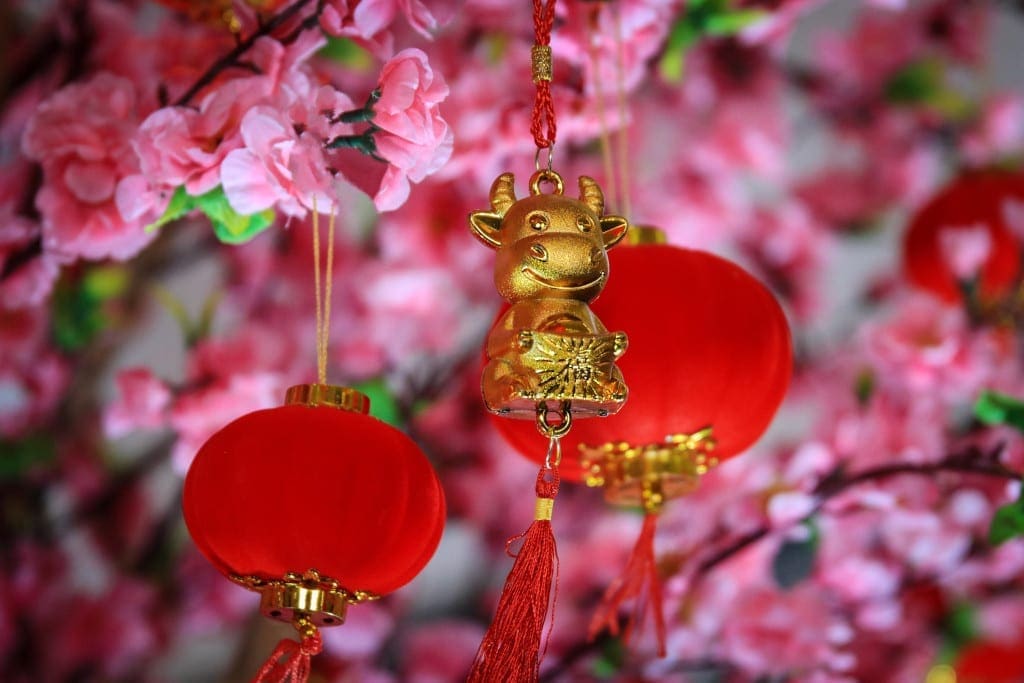
How to have an auspicious Chinese New Year
Put on new clothes
Dress in the colour red
Let off fireworks
Use the auspicious numbers 6 and 8
Exchange red-coloured envelopes with money inside
For more information on China:
Visit the China National Tourist Office website.
Cover image: Dragon dances in Beijing. Image by China Stringer Network.
